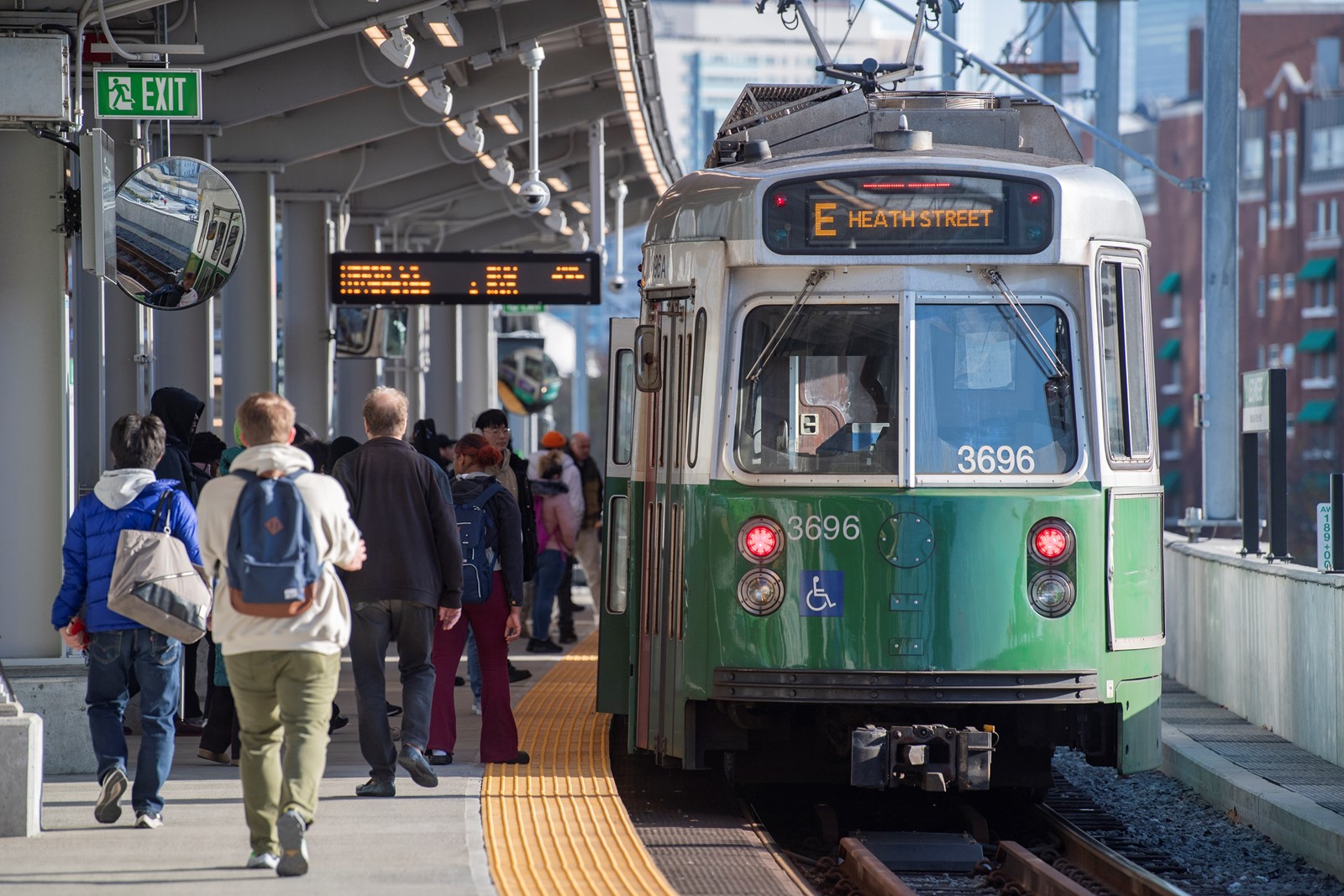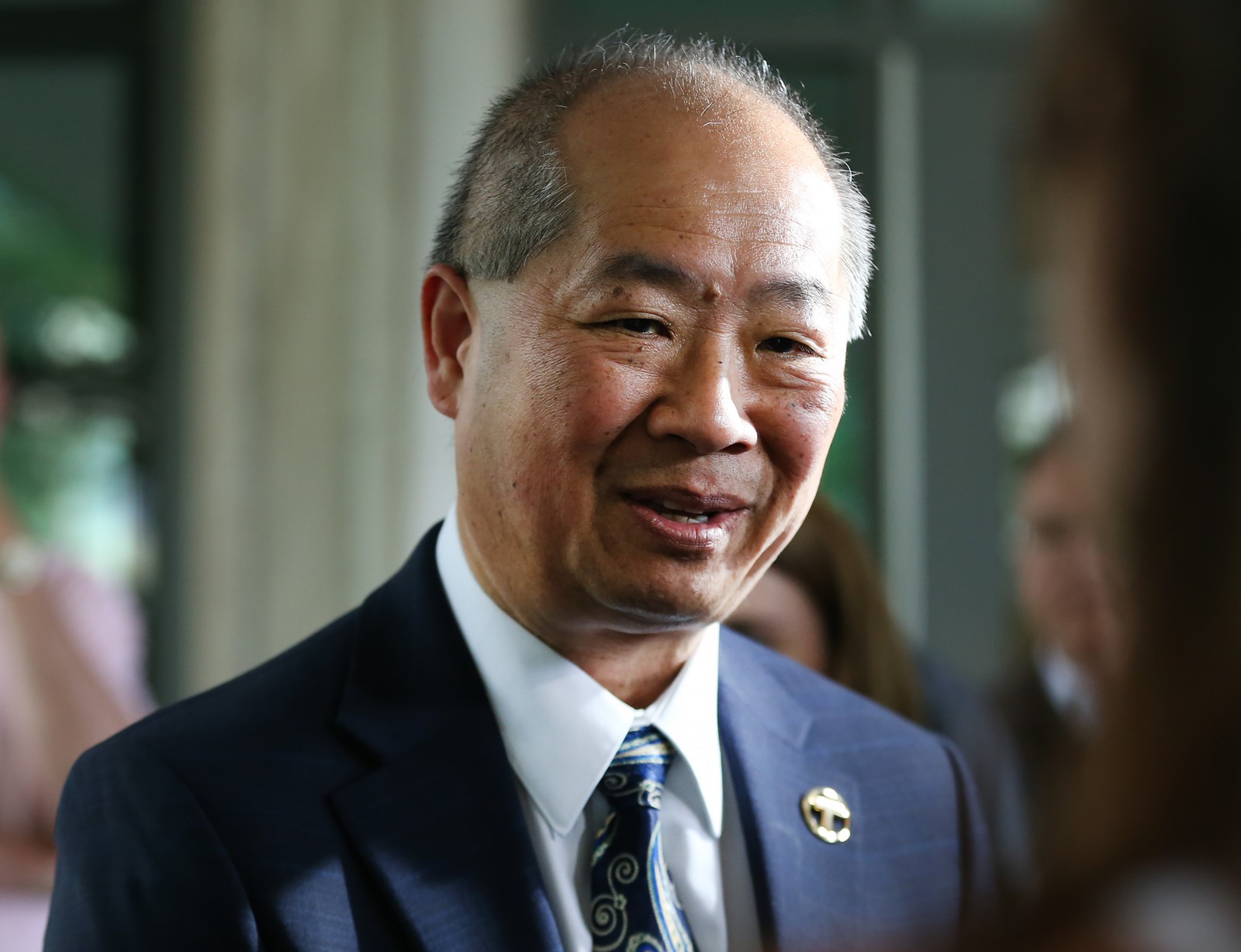

Of nearly $880 million paid to more than 10,000 employees in 2024, 14.3% came in the form of overtime at the MBTA, with more than 100 employees earning an extra six figures on top of their base pay, according to a Herald review.
From the start of this year until the last days of June, the records show that the T is on track to arrive at around the same overtime figure, with 13.7% of earnings this year reported as overtime.
Publicly available data provided by the Office of the State Comptroller and sorted to include everyone covered by an MBTA bargaining group, shows there were at least 113 people paid more than $100,000 in overtime pay at the T last year.
So far this year there are at least four employees who have managed to rack up enough time to break the $100k mark early.
The highest paid employee at the MBTA in 2024 was General Manager Phil Eng, who earned a total of $546,683. So far in 2025 he’s made $256,873.
Except for the GM, no one has hit the $250k mark yet this year, but MBTA police Lt. Manes Cadet and Sgt. Joseph Sacco, along with MBTA Chief Safety Officer Patrick Lavin, have all made it past $200k, the comptroller’s data shows.
A total of 70 employees made more than a quarter of a million dollars working for the MBTA in 2024, and 317 made more than $200,000. Almost 4,200 MBTA employees listed in the data set — about four for every 10 people paid by the MBTA in 2024 — made more than $100k last year.
According to the dataset, the highest paid employees in 2024 after Eng were Cadet, Sacco, MBTA police Lt. Mark Gillespie, Lavin, and foreman John Caruso.
Cadet took home $467,634 last year, of which $274,869 was overtime. Sacco earned $398,629, out of which $257,930 came by way of overtime. Caruso was paid $316,685, with $167,993 earned working extra shifts. Lavin made $360,927 in 2024 but, along with other MBTA executives, did not make any overtime pay.
So far the list of top earners for 2025 looks much the same as for 2024, with Eng at the top, followed by Cadet, Sacco, Lavin, and Caruso. Nicolas Choubah, the program director for the replacement of North Station’s Draw One Bridge, tops out the list of top five non-GM employees.
Lt. Cadet has already earned $121,348 in overtime for 2025, making $218,868 in total, while Sgt. Sacco managed to overtake him on overtime at $139,989, with his salary making up the difference in his $216,921 pay. Caruso has netted $103,596 in overtime so far this year, which on top of his base pay puts him at $182,986.
Choubah, who payroll records show joined the MBTA late in 2024, has made $177,903 for his work so far in 2025 but does not earn overtime.
In total, the comptroller’s data shows that those MBTA employees who do earn overtime pay took home at least $126,386,271 in extra earnings last year, and the T has already paid out $68,739,077 in overtime this year.
In addition to making the top pay list, Manes and Sacco were the top two overtime earners in 2024. They are followed by MBTA Police officer Kelly Daniel, who made $186,808 in overtime on $300,941 pay, night crew foreman Thomas O’Neil, who earned $169,756 in overtime on $292,932 pay, and Caruso.
Sacco leads on overtime so far in 2025, followed by Cades, foreman Ahmad Barakati, who has made $104,267 in overtime out of $167,845 in pay, Caruso, and Kelly, who has made $95,244 of his $159,348 pay in overtime.
The review of MBTA earnings comes following a study by the Pioneer Institute which found operating costs way up at the T after the agency’s Fiscal and Management Control Board was disbanded in 2021. The study showed that operating costs climbed by more than 5% in each of the two years that followed, then jumped by nearly 15% in the next year.
Eng, speaking with the Herald last week, pushed back on the conclusions reached by the study and MBTA critics, noting that just three years ago the Federal Transit Administration recommended the T surge hiring and cease deferral of maintenance.
With that recommendation in hand, the T spent just over a year closing sections of track for days or weeks at a time to tackle maintenance which in the past would have been done during weekends or overnight hours. Under the previous maintenance schedule, Eng said, it would have taken the MBTA four decades to do the “record work” they managed in 14 months.
If getting all of that work done meant more hiring and longer shifts then so be it, Eng said. The riding public has noted the absence of 220 speed restrictions and the revitalized stations, he said, and that’s what really matters. The MBTA, he told the Herald, is not a business and does not strive to make a profit, but rather aims to be “the world class transportation network that the region deserves.”
“I have no issue defending the amount of hours that were spent, including overtime, to accomplish historic work,” Eng said.
Paul Craney, Executive Director at Mass Fiscal Alliance, told the Herald that the overtime data demonstrates an underlying problem at the T. They’re always in need of money, “yet, somehow it has room for hundreds of employees to rack up six figures in overtime.”
“These kinds of bloated payouts are a clear sign of why the T is in such serious financial trouble. Instead of delivering reforms tied to cost, Beacon Hill keeps writing blank checks while ignoring the system’s deep-seated structural problems. Taxpayers and riders deserve a transit system that prioritizes efficiency, safety, and transparency, not one that operates like a patronage machine,” Craney said.


 PREVIOUS ARTICLE
PREVIOUS ARTICLE
